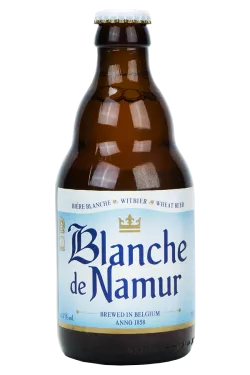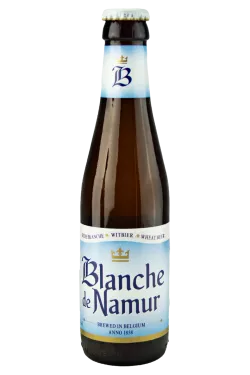Brasserie du Bocq
Every year, the best beers in the world are chosen in international competitions. In these competitions, long-established breweries face young, modern brewers, career changers and old hands. The best wins, no matter how long he or she has been in the business, and that's the fun of it all. 2019 was a very special year for Brasserie Du Bocq from Belgium. Their Blanche de Namur was named the world's best wit with a gold medal in the Brussels Beer Challenge. A day of celebration for the brewery and a good reward for the hard-working men and women behind the kettles, whose motto is "Simply Perfect".
From farmer to brewer
The history of the brewery began small and modestly. The farmer Martin Belot brewed his first batch in 1858. Because agriculture was idle in winter, he began to earn extra money with his home-brewed beer. The excellent water quality of his home town played into his hands. Because Martin and his small team of farm workers handled every step of the work themselves, they could only serve a relatively small radius. Nevertheless, word got around about their wide range of different brews and gave the family a good reputation in the region. The brewery's own delivery and the parallel agricultural operation were not discontinued until almost a hundred years later. From then on, the beer was sold in supermarkets, drinks shops and by traders and was no longer only enjoyed by people from the immediate vicinity of the brewery. Brewing continues at the old location in Purnode to this day.
Export with consequences
Because Belgian beer has been experiencing a real boom for some time and is more popular abroad than ever before, Brasserie Du Bocq also entered the export business and was able to almost double its production thanks to this clever move. The brewery's range is based on more than 150 years of brewing tradition and high standards of quality and taste. The award-winning Blanche de Namur is the brasserie's flagship beer and, like all Du Bocq products, is made with a selection of exquisite raw materials. In typical Belgian fashion, the brews undergo a second fermentation after being bottled. This technique preserves the natural ingredients in a gentle way and produces an incomparably deep taste. Depending on the style, the beer should be served at a temperature of 4 to 12 degrees Celsius. Blanche de Namur is drunk at 4 degrees. The sediment is loosened with a gentle twist of the bottle and poured over the rest of the beer in the glass.
Cheers to your health!




